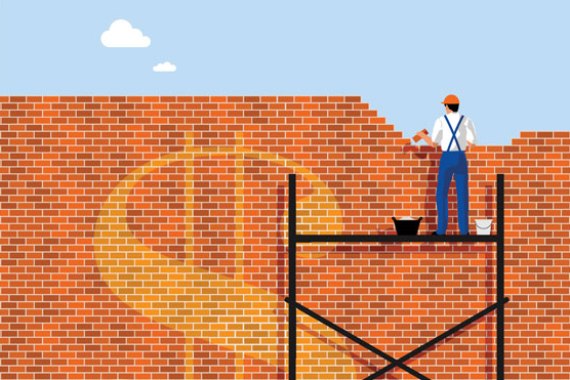It's been a rough stretch for nontraded REITs. But recent re-pricings suggest the valuations of the property trusts may have finally found a floor.
After watching their valuations deteriorate in recent years, many large nontraded real estate investment trusts launched before the credit crisis managed to hold fairly steady in 2012 and in December reported either slight drops or small increases in estimated values.
Unlike their counterparts that trade on an exchange, nontraded REITs have no market to determine a share price. Nontraded REITs are typically sold by independent broker-dealers for $10 per share, and the REIT's board must approve a new estimated value of the product 18 months after brokers have stopped selling the offering.
Many large REITs have experienced tremendous erosion in shareholder equity over the past seven years amid the decline in the commercial-real-estate market. Indeed, eight of the largest nontraded REITs had lost a combined $11.3 billion, or 37% of their equity value as of August, according to an analysis conducted for InvestmentNews.
While executives of nontraded-REIT sponsors commonly blame the broad drop in the value of commercial-real-estate properties as the prime reason for the erosion, not all REITs have seen values drop sharply.
But those REITs that have suffered valuation declines appear to have hit — or at least be nearing — bottom.
The largest such trust, Inland American Real Estate Trust Inc., with $12.2 billion in assets, said last Wednesday its valuation was decreasing to $6.93 per share from $7.22. Then, Behringer Harvard REIT I, with $4.2 billion in assets, on Thursday said its estimated valuation had dropped to $4.01 per share from $4.64 per share. Also this month, the $2.6 billion Hines Real Estate Investment Trust Inc. said its share value had dropped to $7.61 from $7.78 per share.
In the case of Inland American, rising capitalization rates on the REIT's lodging portfolio hurt its valuation, although the REIT's overall performance is improving, according to a letter to investors. A rising-capitalization-rate environment “produces higher yields but lower asset prices despite improved performance,” according to the letter.
The decrease in value of Behringer Harvard REIT I was due to reductions in value of its debt and real estate assets as well as distribution payments to investors and the use of other assets to fund leasing and other operating costs, according to a filing with the Securities and Exchange Commission.
Not all the large nontraded REITs have reported lower valuations. The $3.3 billion KBS Real Estate Investment Trust Inc. told shareholders on Dec. 21 that its value was increasing by 2 cents per share to $5.18.
On the same day, the $3 billion KBS Real Estate Investment Trust II Inc. told shareholders its value was increasing to $10.29 per share from $10.11. That increase “was driven significantly by a higher estimated value of the REIT's real estate properties, among other factors,” according to a letter sent to shareholders.







